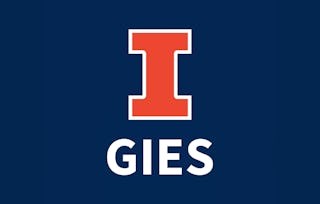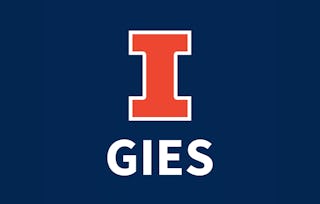In this course, you will learn how to use accounting to facilitate and align decisions made by owners, managers, and employees. You will learn how accountants create, organize, interpret, and communicate information that improves internal processes and allows organizations to identify and leverage opportunities to create value within the supply chain and with customers.

Managerial Accounting: Cost Behaviors, Systems, and Analysis

Managerial Accounting: Cost Behaviors, Systems, and Analysis
This course is part of Value Chain Management Specialization

Instructor: Gary Hecht, Ph.D.
67,837 already enrolled
Included with
1,369 reviews
What you'll learn
Describe fundamental concepts of managerial accounting.
Apply the financial perspective of accounting for costs.
Address common "what-if" questions using cost-volume-profit (CVP) analysis and apply CVP analysis in a variety of scenarios.
Apply activity-based costing (ABC) and recognize the influence of setting and decision characteristics on the relevance of ABC systems.
Skills you'll gain
Details to know

Add to your LinkedIn profile
1 quiz, 13 assignments
See how employees at top companies are mastering in-demand skills

Build your subject-matter expertise
- Learn new concepts from industry experts
- Gain a foundational understanding of a subject or tool
- Develop job-relevant skills with hands-on projects
- Earn a shareable career certificate

There are 4 modules in this course
In this module, you will become familiar with the course, your instructor, your classmates, and our learning environment. Then, you will be introduced to Managerial Accounting and Costing Concepts.
What's included
12 videos9 readings4 assignments1 plugin
Organizations can organize cost information however best suits their decisions. In this module, we introduce the role of costing systems, identify some example systems and settings in which they are most useful, and explore how accounting for overhead costs influences the value of cost information.
What's included
8 videos2 readings3 assignments
Activity-based costing systems adopt a more refined view of the organization, and can increase the accuracy of cost information. In this module, we introduce the fundamentals of activity-based costing systems, identify related advantages and disadvantages, and demonstrate how such systems are implemented using an in-depth example.
What's included
8 videos2 readings3 assignments1 peer review
Cost-volume-profit (CVP) analysis is the tool that managers can use to better understand the answers to "what-if" questions in order to make better decisions for their companies. In this module you will explore the power of CVP analysis.
What's included
8 videos4 readings1 quiz3 assignments1 peer review1 plugin
Earn a career certificate
Add this credential to your LinkedIn profile, resume, or CV. Share it on social media and in your performance review.
Build toward a degree
This course is part of the following degree program(s) offered by University of Illinois Urbana-Champaign. If you are admitted and enroll, your completed coursework may count toward your degree learning and your progress can transfer with you.¹
Instructor

Offered by
Explore more from Finance

University of Illinois Urbana-Champaign

University of Illinois Urbana-Champaign

University of Illinois Urbana-Champaign

University of Illinois Urbana-Champaign
Why people choose Coursera for their career

Felipe M.

Jennifer J.

Larry W.

Chaitanya A.
Learner reviews
- 5 stars
78.84%
- 4 stars
17.35%
- 3 stars
2.62%
- 2 stars
0.36%
- 1 star
0.80%
Showing 3 of 1369
Reviewed on Mar 19, 2021
I really enjoyed this course. It was really easy for me to grasp complex concepts. Thank you for designing the course in such a way. It really helped me a lot.
Reviewed on Nov 19, 2017
Great Course that gives you the basics of Costing and it's relevant in regular Business decisions. Well articulated to ensure that people new to the concepts also understand it clearly!
Reviewed on Oct 3, 2022
Seems well-designed to test competency. However, didn't seem appropriate for those with absolutely no basic knowledge of accounting terms (e.g. what is "Gross Margin"?).

Open new doors with Coursera Plus
Unlimited access to 10,000+ world-class courses, hands-on projects, and job-ready certificate programs - all included in your subscription
Advance your career with an online degree
Earn a degree from world-class universities - 100% online
Join over 3,400 global companies that choose Coursera for Business
Upskill your employees to excel in the digital economy
Frequently asked questions
Once you enroll for a Certificate, you’ll have access to all videos, quizzes, and programming assignments (if applicable). If you choose to explore the course without purchasing, you may not be able to access certain assignments.
You will be eligible for a full refund until 2 weeks after your payment date. You cannot receive a refund once you’ve earned a Course Certificate, even if you complete the course within the 2-week refund period.
Yes! Coursera provides financial aid to learners who would like to complete a course but cannot afford the course fee. To apply for aid, select "Learn more and apply" in the Financial Aid section below the "Enroll" button. You'll be prompted to complete a simple application; no other paperwork is required.
More questions
Financial aid available,

